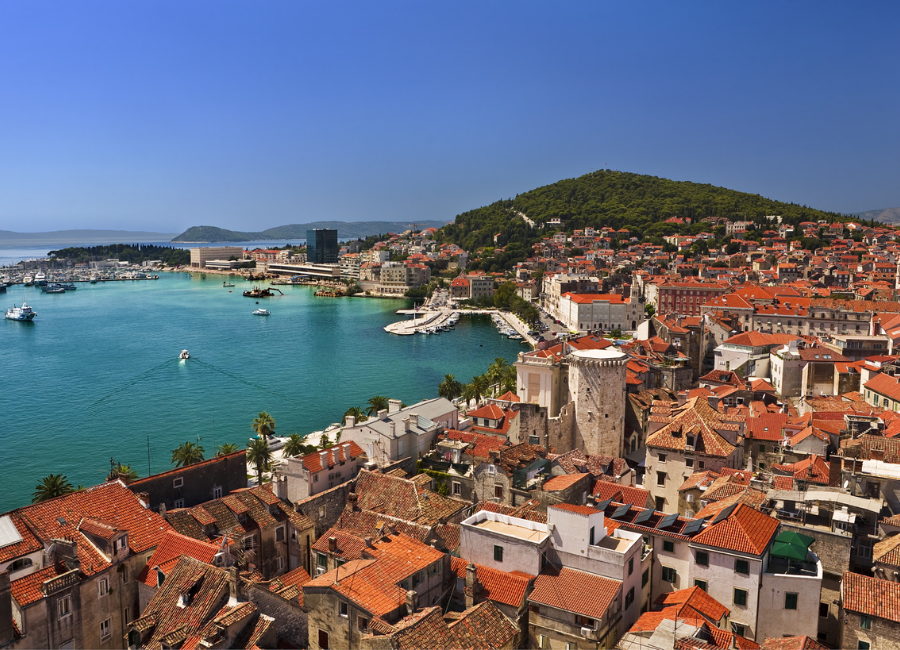
Planning A Trip to Croatia? This is Everything You Should Know!
Woven into a captivating tapestry of natural beauty and rustic getaways, Croatia unquestionably lives up to its immense acclaim. However, with the abundance of experiences and sights, navigating where to commence and what to steer clear of can be rather intricate. Here are 13 Essential Tips you must know before planning a trip to Croatia.
- Extensive Bus Network for Travel: Unlike some other European destinations where train travel prevails, Croatia boasts an extensive and reliable bus network connecting major attractions, making it an excellent choice for budget-conscious travelers. Utilize resources like Busbud to access current schedules and book tickets. Keep in mind that travel times between locations may be longer than expected, especially when venturing away from the coast, as some roads can be winding.
- How many days to spend in Croatia:
The number of days to spend in Croatia depends on your interests and the specific places you want to visit. Croatia offers a diverse range of experiences, from coastal towns and islands to historic cities and natural parks. Here are some general guidelines:
- Short Getaway (3-5 Days): If you have limited time, you can focus on a single destination or a few nearby locations. For example, you could spend a long weekend exploring the city of Dubrovnik, relaxing on the nearby beaches, and taking a day trip to Montenegro.
- Week-Long Trip (7-10 Days): With a week or more, you can explore a larger region of Croatia. Consider visiting the Dalmatian coast, which includes Dubrovnik, Split, and the nearby islands. You’ll have time for city exploration, island hopping, and cultural experiences.
- Two Weeks or More: If you have two weeks or more, you can experience a more comprehensive tour of Croatia. You can explore both the Dalmatian coast and the Istrian Peninsula, which offers a different cultural and culinary experience. This duration allows you to see several cities, islands, and national parks.
- Special Interests: If you have a specific interest, such as hiking in Plitvice Lakes National Park or wine tasting in Istria, you can plan a trip around that interest. In this case, the number of days depends on the depth of your exploration.
- Cruise: Some travelers opt for cruises along the Adriatic coast, which can vary in length from a few days to a week or more. A cruise can be an excellent way to see multiple coastal destinations efficiently.
- What’s the Appropriate Tipping Etiquette: Tipping practices in Croatia are generally more relaxed compared to some other countries. However, it’s customary to leave a gratuity of at least 10% when dining in restaurants or receiving beauty and spa treatments. In bars and cafés, it suffices to round up the bill. Tour guides often welcome a few euros as a token of appreciation after a tour, and while taxi drivers don’t necessarily expect tips, rounding up the fare to the nearest euro is a gesture that’s well-received. If you find students offering to clean car windshields while refueling your car, you might consider giving them a couple of euros, as they rely on tips for their earnings.
- Consider Planning A Trip To Croatia During Shoulder Seasons: If you have some flexibility in your travel plans to Croatia, aim for the shoulder seasons, typically in May to June or September to October. The weather remains pleasant, and crowds are significantly smaller, particularly in tourist hotspots like Split or Dubrovnik. These seasons also host exciting festivals, such as the Truffle Festival in Istria and the Split Film Festival in September. If you don’t mind missing out on Adriatic swimming, the off-season can be a budget-friendly alternative, as prices are notably reduced compared to the peak season. In fact, cities like Dubrovnik actively promote off-season travel by offering free walking tours to manage the crowds in peak season. If you decide to travel during the peak season, advance accommodation bookings are essential due to high demand.
- Consider Renting a Car for Off-the-Beaten-Path Exploration: While Croatia’s bus network is comprehensive, renting a car is a great choice for those seeking to explore lesser-known destinations. Renting a car provides the flexibility to visit small coastal towns or venture into picturesque hill towns that might be less accessible without a car. It’s worth noting that a car rental may not be necessary for your entire Croatia itinerary, especially in major cities. Thus, consider renting a car for a few days when you plan to explore off-the-beaten-path areas, such as the hill towns of Buje, Groznjan, and Motovun during a trip to Istria. Rentalcars.com is a helpful platform for finding car rental deals as they aggregate offers from various car hire companies in the region.
- Explore Zagreb: Don’t miss out on visiting Croatia’s capital, Zagreb, while traveling through the country. Zagreb is emerging as a trendy destination with a wealth of attractions. Spend a few days exploring the city’s vibrant street art scene, unique museums like the Museum of Broken Relationships, the excellent restaurant scene offering Croatian and international cuisine, and the lively nightlife. Your Croatia itinerary is incomplete without adding Zagreb to it.
- Take Your Time to Explore: Croatia offers incredible diversity, with numerous regions to discover. You can fully experience the country by taking your time, allowing you to explore various areas. Croatia’s varied landscapes and cultural richness mean you could spend two to three weeks in the country and still find more to see and do.
- Is It Safe to Consume Tap Water: Tap water in Croatia is both safe and suitable for drinking.
- Mindful Travel and Impact: Croatia’s increasing popularity has resulted in previously less-visited cities and national parks receiving more tourists than before. When planning your trip, be mindful of the impact your visit may have on these places and make an effort to minimize it. For example, when visiting Dubrovnik, consider dining at local restaurants to support the community. When exploring Plitvice Lakes National Park, stick to marked paths and ensure you leave no trace by disposing of your trash properly. Try to avoid visiting popular destinations during peak season to reduce the burden on these areas.
- Learn Basic Phrases: While this holds true for traveling anywhere in the world, learning a few basic phrases in Croatian can be especially appreciated by locals. Whether due to many tourists not making the effort or locals’ pride in their culture, speaking phrases like “Hvala” (thank you), “molim” (please), “dobar dan” (good day), and “živjeli” (cheers) can endear you to the people you meet.
- Savor Local Cuisine: Despite Croatia’s climate resembling other gastronomical regions like Spain or Italy, Croatian cuisine hasn’t gained the same recognition. However, you can relish Balkan staples like burek and cevapi throughout the country, alongside a variety of dishes reminiscent of traditional Italian cuisine. Croatia produces superb wines, olive oils, and truffles (especially in the northern region), and offers delectable seafood along the coast. While Croatian cuisine may not be the primary reason for your visit, it’s likely to be one of the reasons you return.
- Carry Cash: In Croatia, cash holds the throne. You can convert foreign currency at banks, ATMs, and exchange counters scattered across the nation. Be ready to have cash on hand, as not all establishments take cards as payment, including cafes, local tour operators, farmers’ markets, small enterprises, and specialty shops. However, larger establishments, hotels, select restaurants, and international retailers do accept card payments. On the topic of cash, while tipping is a kind gesture, it’s not an anticipated practice. Unlike some other countries, tipping doesn’t play a central role in Croatian culture. If you do wish to leave a tip, simply round up your bill, and if you’re settling with a card, ensure you leave the gratuity in cash.
- Study the History: Before planning your trip to Croatia, take time to educate yourself about the country’s recent history and the Balkans. This will help you become a more informed and respectful traveler. Numerous works of fiction and non-fiction, as well as online resources, can deepen your knowledge and enhance your travel experiences in Croatia. Croatia is an incredible destination that’s increasingly gaining popularity, and these ten tips will help you prepare for your visit to this beautiful country.
Want help in planning a trip to Croatia? Reach out to our experts and they will be happy to help.




